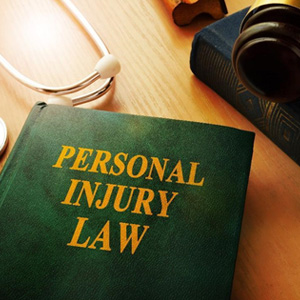 Interacting With The Other Party
Interacting With The Other Party
After your accident, avoiding any detailed conversation about the accident is highly advisable. Many people tend to think they are simply being empathetic and say to the other party something like, “I am sorry to see you are hurt.” Something like this will probably be argued as an inadvertent admission of fault and be used against you. While asking how they are doing is okay, be strategic with the words you choose. Instead, ask, “Are you okay?” Entirely avoid discussing who was at fault, your physical condition, or any speculation about the accident.
However, you will need to exchange information with the other party. Keep your interaction limited to this. Provide the other party with your:
- ID and contact information;
- Vehicle registration number;
- VIN number;
- Insurance information;
- Any photos or descriptions of the scene.
Get the same from the other party. This information can be provided to your attorney, who will later provide it to the insurance company. In addition, any formal statement or communication about the accident should be made in the presence of your attorney. This is true even if it’s with your own insurance company.
Recording And Preserving Evidence From The Scene
Perhaps the most important thing to preserve from the scene of your accident is photographs. Photographs are absolutely vital. Try to get pictures of all vehicles involved from different angles. As well, take photos of your injuries and the overall scene of the accident, including traffic signs, road conditions, or things like skid marks. Besides photographs, collect any witnesses’ information, including their names, phone number, and relevant contact information. The goal here is for them to help establish fault.
Make notes of the incident as soon as you can. You would be surprised how much of your recollection will blur with time. Specifically, note the time, location, weather, road conditions, and how the accident happened. In addition, getting a copy of the police report, driver exchange information report, or the short form crash report. On the police report, you will find the officer’s observations or any citations that were issued, which can help your case in the future.
If you were severely injured and unable to collect evidence, do not worry. Most information can be generated after the fact. Most often, if someone is severely injured, law enforcement will be called to the scene, and they will record that information as well.
Ultimately, your health is the thing you should be most concerned with at this point in time. Focus on it, and the rest will be taken care of.
Accidents With Uninsured Or Underinsured Drivers
Although it may be more involved, it is possible to get financial recovery when the other party in your accident is uninsured or underinsured. Having uninsured or underinsured motorist protection coverage makes this process much more straightforward than not having it.
Uninsured motorist coverage is optional in Florida, but I highly recommend getting it if you do not currently have it. It kicks in when the at-fault driver is uninsured, or you are the victim of a hit-and-run. Underinsured motorist coverage comes into play when the at-fault driver’s bodily injury protection insurance coverage is exhausted and insufficient to cover all your damages.
In addition, you could potentially file a lawsuit against the at-fault driver directly as well, but this would only make sense if they were to have personal assets worth as much as your damages. Unfortunately, many attorneys shy away from these types of cases because the chance of them not having any money available after a judgment is reached is considerably high. This is particularly so because bankruptcy laws are such that many people seek bankruptcy as relief from judgments.
The last thing is Med Pay coverage. Medical payments coverage can help cover medical bills or the remaining 20% after PIP pays 80% upfront.
Seeking Medical Treatment Promptly
If you are the injured party in an accident, it is critical you seek medical treatment immediately. Medical professionals can better document injuries if brought to their attention as close to the time of the accident as possible. This is crucial in demonstrating causation, that is, that the crash caused your injuries.
Beyond this, there is a good chance you will have suffered injuries you do not even notice. Seeking medical care can uncover whether you have any. Hospitals often conduct CT scans to check for internal bleeding in the case of head injuries or use X-rays to determine fractures. Sometimes, these types of tests are necessary to determine the severity of the injury.
Further, PIP (Personal Injury Protection) requires you to seek medical treatment within 14 days of your crash. You will not be eligible for BI (Bodily Injury) benefits if you do not. This puts $10,000 worth of benefits in jeopardy. Seeking immediate medical treatment validates your claim. Insurance companies may argue that since you waited too long, you weren’t actually injured because of the accident. Seeking medical attention shows that you took your injury seriously by virtue of taking the time to immediately seek medical attention.
For more information on Information & Evidence In Personal Injury Claims, an initial consultation is your next best step. Get the information and legal answers you are seeking by calling (904) 357 0090 today

Call For a Free Consultation
(904) 357 0090 | Available 24/7